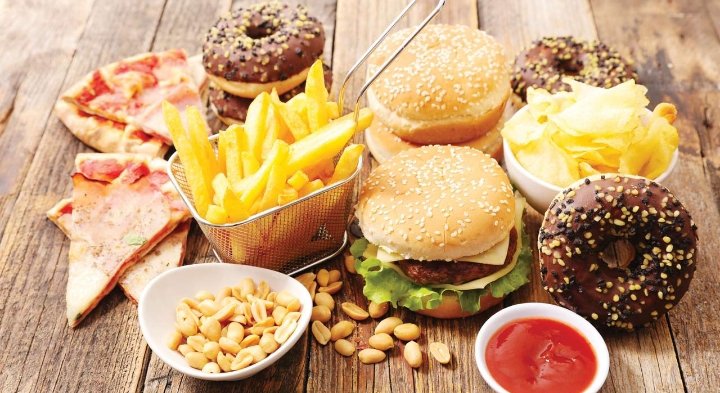
What is Trans fat?
Trans fat is considered the worst type of fat to eat. Unlike other dietary fats, trans fats — also called trans-fatty acids — raise “bad” cholesterol and also lowers “good” cholesterol.
A diet laden with trans fats increases the risk of heart disease, the leading killer of adults. The more trans fats eaten, the greater the risk of heart and blood vessel disease.
Trans Fats exist naturally in small amounts in some meat and dairy products. However, they’re also artificially added to many foods as partially hydrogenated oil, because it spoils more slowly than similar products. While doctors and scientists are not sure exactly how bad naturally occurring trans fats are for you, they do know that artificial trans fats can lead to high cholesterol and a higher risk of heart attack, stroke, and even diabetes.
Why are trans fats considered to be unhealthy?
Trans fat confers no health benefits; instead, it is associated with a high risk of developing a plethora of diseases.
Cardiovascular disease (CVD)
People who regularly eat trans fats are more likely to suffer from heart disease and stroke. Trans fats affect blood cholesterol levels by raising LDL cholesterol (bad cholesterol) and triglycerides and lowering HDL cholesterol (good cholesterol).
Trans fats cause systemic inflammation, increased formation of blood clots, and reduced endothelial function or vascular relaxation – all contributing to increased cardiovascular risk.
Diabetes
Trans fats also contribute to insulin resistance and thus elevate the risk of developing type 2 diabetes.
Carcinogenic (cancer-causing) properties of trans fats
Trans-fat has also been linked to breast cancer development. A study conducted by Kohlmeier et al., found a positive association of body stores of trans fatty acids and breast cancer development in postmenopausal European women; however, this fact requires confirmation in other populations too.
Trans-fatty acids have also been hypothesized to increase the risk of colon cancer. Alteration of immune response, cell wall integrity, and impairments in prostaglandin synthesis are some reasons postulated for the same.
Pregnancy complications
Trans fat can cross the placenta and cause fetal impairments. A high intake of trans fatty acids has also been associated with the risk of preeclampsia – a condition characterized by high blood pressure and protein in the urine.
Allergy
As per a study by Weiland et al., trans fat increases the incidence of allergic conditions such as asthma, allergic cold, and eczema. Due to these adverse effects, several countries such as Denmark, Switzerland, Canada, Britain, and the United States have reduced or restricted the use of trans fats by the food industry.
The World health organization (WHO) has also launched a campaign to eliminate the use of trans fat, especially in emerging economies of South Asia and Africa.
Which foods contain trans fat?
Fried fast foods

These toxic substances are found in many fried fast foods in Nigeria such as puff puff, pizza, buns, deep-fried (Akara, fried meat, chicken, yam etc) plantain chips, cakes, pastries, doughnuts, including pre-packaged foods and vegetable oil. When eating on the go, bear in mind that these takeout food options contain a high levels of trans fat.
That’s because the high cooking temperatures used during frying can cause the trans fat content of the oil to increase slightly (13Trusted Source, 14Trusted Source).
The trans fat content also increases each time the same oil is reused for frying (13Trusted Source, 14Trusted Source, 15Trusted Source).
Because it can be hard to avoid trans fats from fried food, it may be best to limit your intake of fried foods and choose foods that are grilled, roasted, steamed, or sauteed instead.
Certain vegetable oils

It is a common sight in Nigeria to see vegetable oils that are solidified especially in the cold weather. These types of oils contain trans fat and are very harmful to our body organs. Some vegetable oils may also contain trans fats, especially if the oils are hydrogenated.
Because hydrogenation solidifies oil, these partially hydrogenated oils were long used to make margarine. Therefore, many types of margarine on the market in past years were high in trans fats.
Margarine is sometimes marketed as a healthier alternative to butter, but some kinds of margarine actually contain up to two grams of trans fat per tablespoon
However, some non-hydrogenated vegetable oils may also contain small amounts of trans fat as a result of high heat used in some processing methods (13Trusted Source, 14Trusted Source).
To reduce trans fat consumption from margarine and vegetable oils, avoid products that contain partially hydrogenated oils or choose healthier oils such extra-virgin olive oil or coconut oil.
Non-Dairy Coffee Creamer

It’s possible that your daily dose of caffeine has also been giving you a daily dose of trans fats. Many non-dairy coffee creamers use oils that contain trans fats. Nondairy coffee creamers are used as a substitute for milk or cream in coffee, tea, and other hot beverages.
The main ingredients in most nondairy coffee creamers are sugar and oil. Most nondairy creamers were traditionally made from partially hydrogenated oil in order to increase shelf life and provide a creamy consistency.
Be sure to check the ingredients list carefully and look for brands that contain less sugar and fewer additives and artificial ingredients.
Meat & Dairy

Trans fat occurs naturally in meat and dairy products. However, scientists need to do more research on these naturally occurring trans fats enough to know if they’re as harmful as artificial ones. But to be on a safer side many believe it is still a good idea to cut down on possible intake by eating lean meats and low-fat dairy products.




